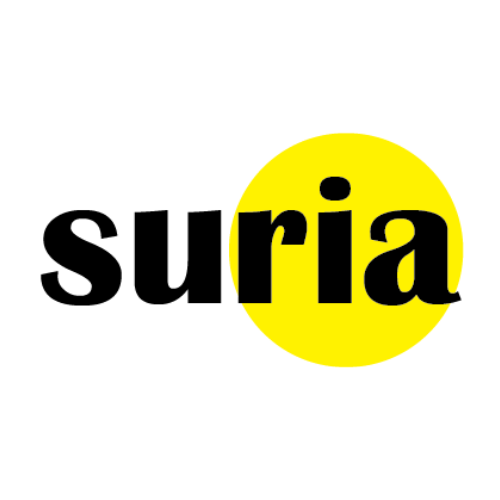Hairnets or Caps?
In the food serving industry, hygiene is non-negotiable. With food safety regulations tightening, businesses must implement measures that effectively prevent contamination. Among these measures, the use of protective headgear stands out. But when it comes to headgear, the debate often boils down to one question: hairnets or caps? Both have their merits, but which is better suited for your business? Let’s explore this in detail, drawing insights from top suppliers in Malaysia.
Why Hygiene is Crucial in F&B
To start, consider the critical role hygiene plays in the food serving industry. Even a small slip in cleanliness can lead to severe consequences, such as foodborne illnesses and damage to your reputation. Ensuring that no stray hair ends up in your customers’ meals is a top priority. This is where protective headgear, like hairnets or caps, becomes essential. But which option truly meets the high standards of hygiene required in food serving environments?
Hairnets: The Go-To for Food Preparation

Hairnets have long been the preferred choice in the food industry, and it’s easy to see why. They provide excellent coverage, securely keeping all hair in place. Made from lightweight, breathable materials, hairnets are especially suitable for hot food preparation areas, where comfort during long shifts is crucial. Moreover, they are highly effective in covering the entire head, including areas that caps might miss, such as the sides and back, ensuring that no stray hairs escape.
An additional benefit of hairnets is their disposability. Being single-use, hairnets eliminate the need for washing and reduce the risk of cross-contamination. In contrast, caps might become dirty over time, especially if not washed regularly. This makes hairnets a more hygienic option, particularly in busy kitchens where cleanliness is paramount.
Caps: A Modern, Stylish Alternative

On the other side, caps have gained popularity as a modern alternative to hairnets. Caps offer a structured fit, which some employees may find more comfortable. They also present a more professional appearance, making them suitable for front-of-house roles. Caps can even be customized with logos, serving as both a hygiene tool and a branding opportunity. However, despite these advantages, caps do have limitations. They may not cover all hair as thoroughly as hairnets, particularly for those with longer hair, which could be a concern in environments where strict hygiene is essential.
Additionally, caps require regular washing. If not cleaned properly, they can become dirty, potentially harboring bacteria. This makes them less convenient than disposable hairnets, which are designed to be used once and then discarded.
Pros and Cons: Hairnets or Caps?
Hairnets
Pros:
- Superior Coverage: Hairnets keep all hair contained, offering better overall protection.
- Lightweight and Comfortable: Hairnets, made from breathable materials, are perfect for long shifts in hot food preparation areas.
- Effective Hair Containment: Hairnets cover the entire head, including hard-to-reach areas, minimizing the risk of stray hairs.
- Disposable: As a single-use item, hairnets don’t require washing, which reduces the risk of contamination.
Cons:
- Less Professional Look: Hairnets might not offer the polished appearance that caps do, which could matter in customer-facing roles.
- Limited Reusability: Being disposable, hairnets are not ideal if reusability is a priority for your business.
Caps
Pros:
- Structured Fit: Caps provide a more tailored and comfortable fit, which some employees may prefer.
- Professional Appearance: Caps offer a more polished look, which can enhance your business’s image, particularly in front-of-house areas.
- Branding Opportunities: Customizable with logos, caps can serve dual purposes as protective gear and branding tools.
- Reusable: Unlike disposable hairnets, you can reuse caps, making them a more sustainable option.
Cons:
- Less Hair Coverage: Caps may not cover all hair effectively, especially for those with longer hair, which could compromise hygiene.
- Regular Washing Required: Caps require regular cleaning to maintain hygiene. If not washed properly, they can become dirty and unhygienic.
Choosing the Right Supplier in Malaysia
Whichever option you choose, selecting the right supplier is crucial. In Malaysia, there are numerous suppliers offering high-quality hairnets and caps. When choosing a supplier, consider product quality, pricing, and customer service. A reliable supplier should provide products that meet industry standards and offer timely delivery. It’s also a good idea to request samples to evaluate the products before making a large purchase.
Conclusion: Hairnets or Caps—Which is Right for Your F&B Business?
In conclusion, both hairnets and caps have their place in the food serving industry. Hairnets are ideal for hot food preparation areas where hygiene is paramount, offering superior coverage and being disposable, which eliminates the need for washing. Caps, on the other hand, offer a more professional appearance and can be customized for branding purposes. However, they require regular washing.
Ultimately, the decision depends on your specific needs and priorities. Regardless of your choice, ensure that you partner with a reputable supplier in Malaysia to guarantee the quality and reliability of your headgear.
Discover our hair nets products here

Leave a Reply
You must be logged in to post a comment.